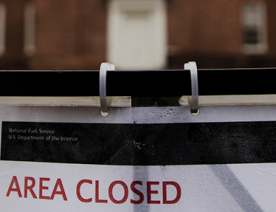
October 16, 2025
On October 1st, the federal government entered a shutdown due to a deadlock between Republicans and Democrats in Congress that led to a lapse in funding. Two weeks later, there has been little movement toward resolution, with House Speaker Mike Johnson predicting it could be one of the “longest shutdowns in American history.”
Nine in 10 adults think that the federal government shut down is at least a “minor” problem, with half of the public calling it a “major” problem. Democrats tend to be more alarmed about the shutdown with 69% saying it is a major problem compared with 37% of Republicans.
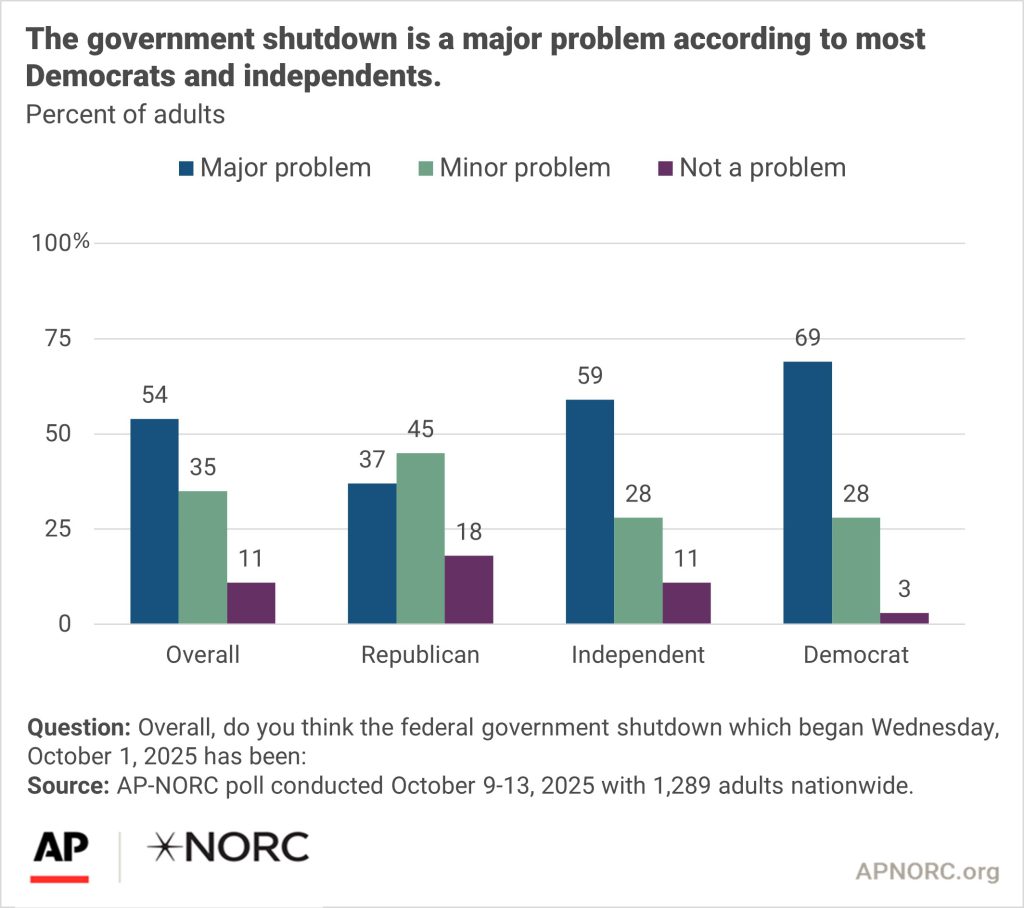
When it comes to casting blame for the shutdown, the public tends to distribute responsibility pretty evenly among the parties. Fifty-eight percent feel Donald Trump and Republicans in Congress hold “a great deal” or “quite a bit” of responsibility for the shutdown. Fifty-four percent place the same responsibility on Congressional Democrats.
About eight in 10 Democrats place responsibility on the president and the Republicans in Congress, while 7 in 10 Republicans say Democrats in Congress are responsible. Independents tend to hold all parties responsible.
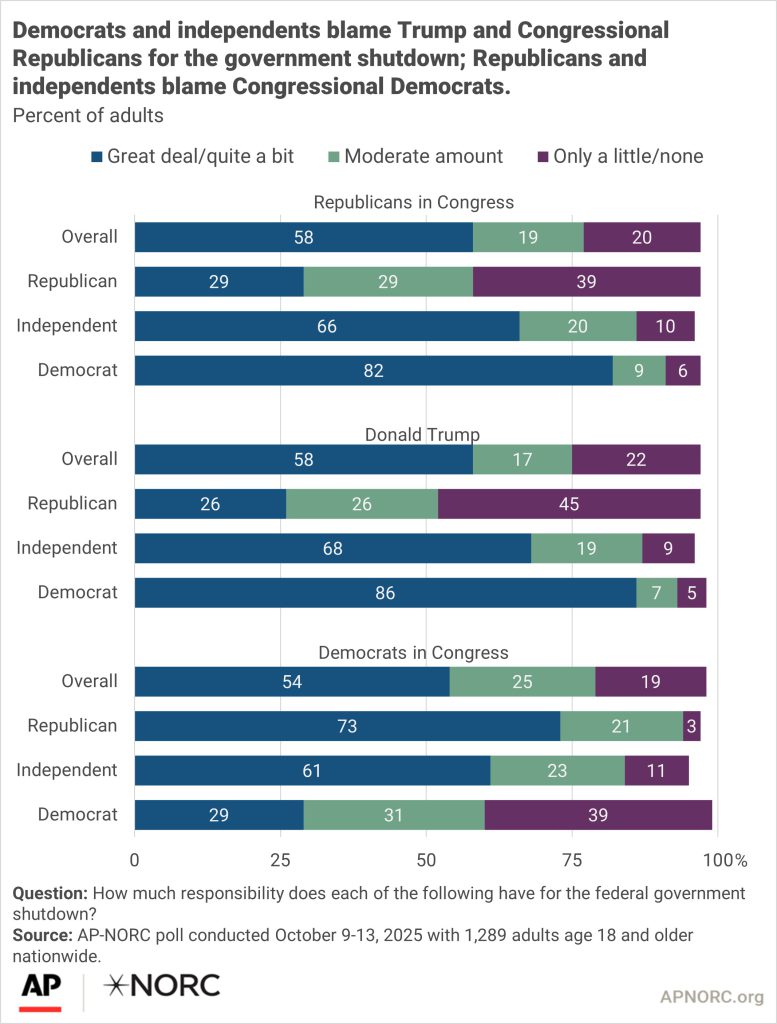
Responsibility for the government’s shutdown from December 22, 2018 through January 25, 2019 was also viewed through a partisan lens. According to an AP-NORC poll conducted soon before the conclusion of the shutdown, Democrats were more inclined to blame the president and Congressional Republicans, while Republicans held Democrats in Congress largely responsible.
The deadlock in Congress is largely centered around health care subsidies. Many have not tuned into the specifics of the dispute — 42% do not have an opinion about extending tax credits to those who purchase health care through the Affordable Care Act marketplace. However, more favor extending the health care subsidies than oppose them.
Democrats tend to favor the policy more, with two thirds supporting, while Republicans are generally more ambivalent on the specifics with half neither favoring nor opposing.
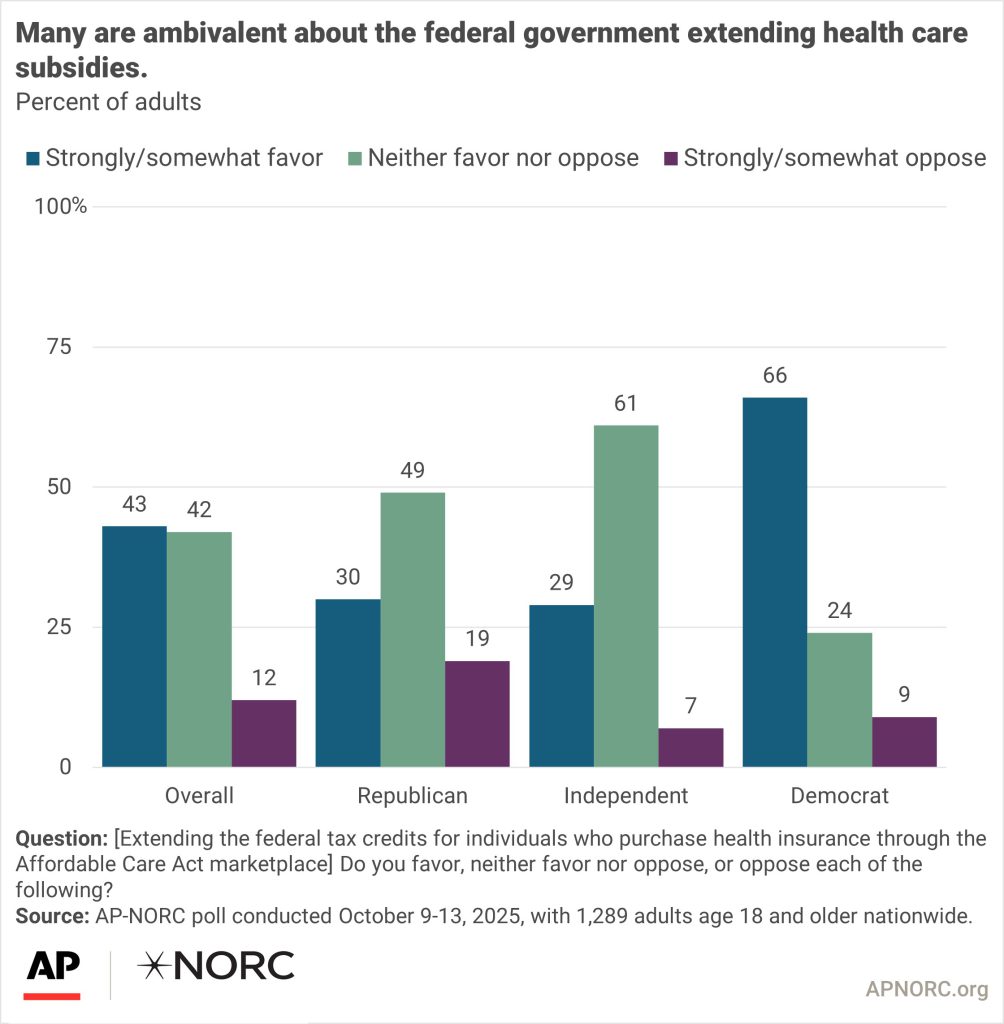
In general, very few Americans have a lot of confidence in the people running Congress. Only 4% of the public have a great deal of confidence, while half have hardly any confidence at all. While still generally pessimistic, Republicans tend to be slightly more confident in Congress than Democrats or independents.
In comparison, the public has most confidence in those running the military followed by the Executive Branch and the Supreme Court.
Generally, Republicans are more confident in these institutions than Democrats.
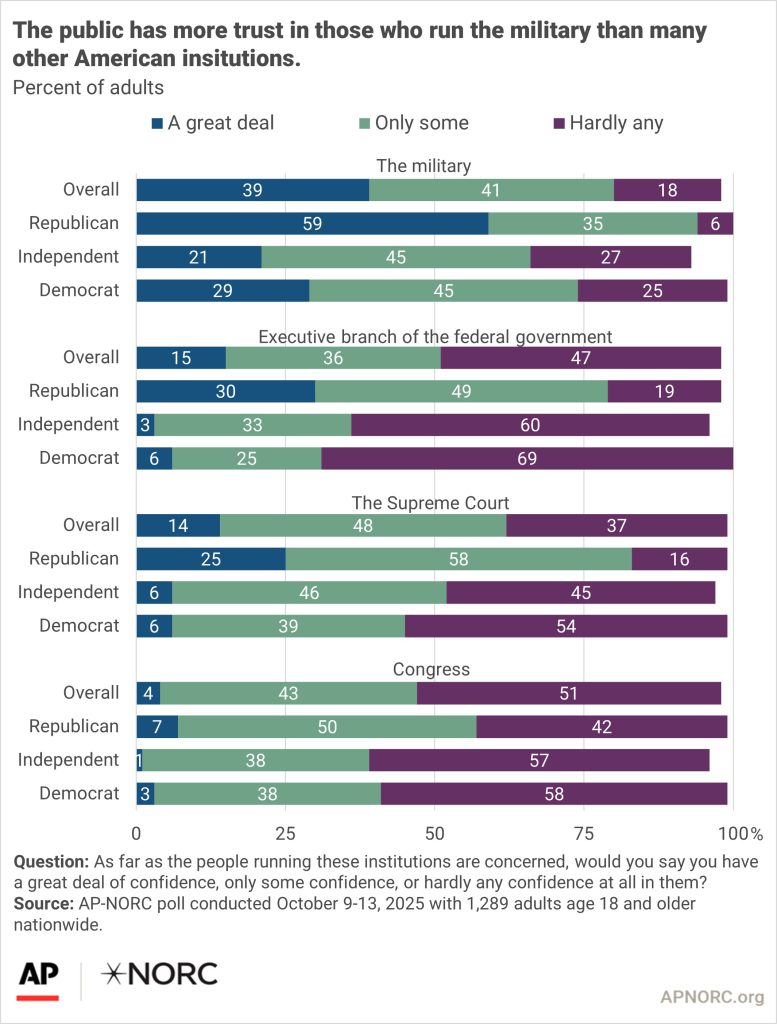
The public doesn’t hold either party in high esteem. Three in 10 view the Democratic Party favorably and 4 in 10 view the Republican Party favorably. This seems to be in part tied to more intra-party conflict within the Democratic Party. Sixty-seven percent of Democrats view their party favorably compared with 84% of Republicans who view their party favorably.
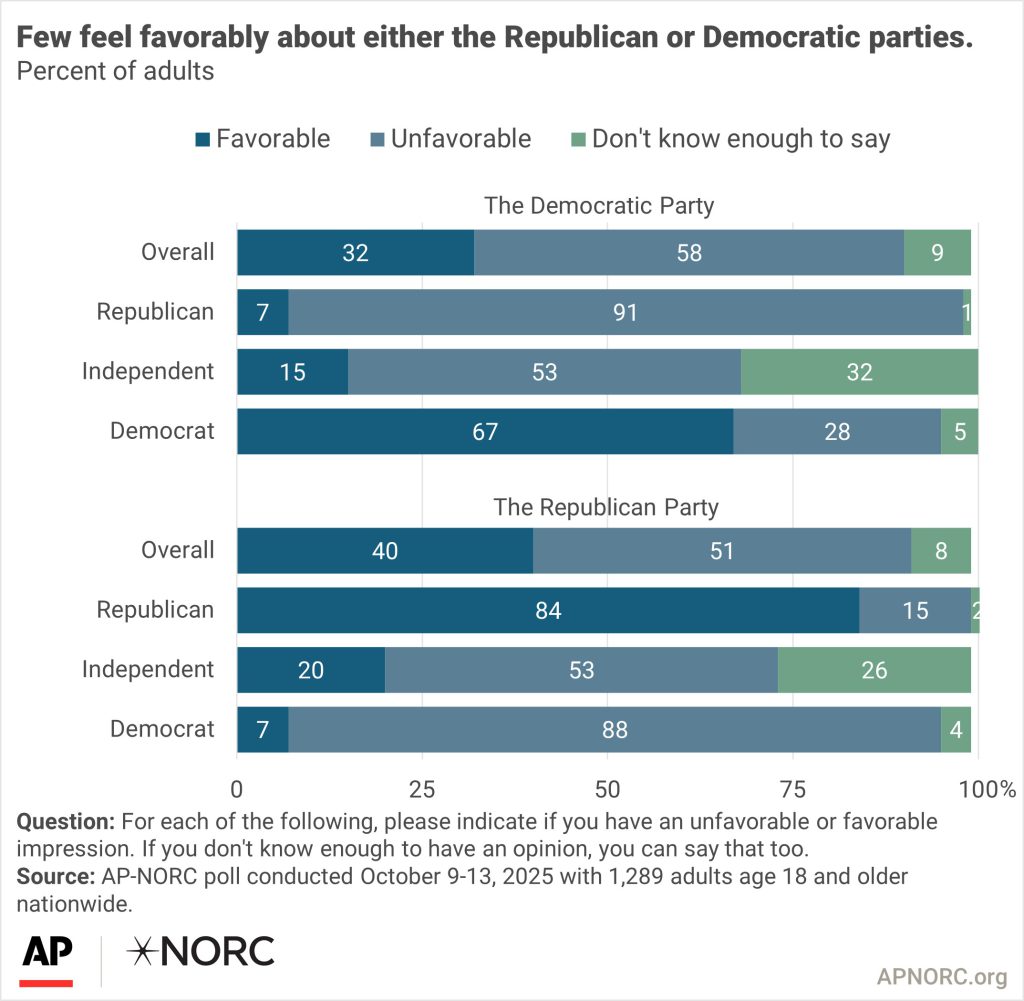
When it comes to trust in handling a variety of issues, the public tends to trust the Republican Party more to handle the economy, immigration, and crime. The Democratic Party is trusted more to handle health care. For each, about one quarter of the public does not trust either party and about 1 in 10 trust both parties.
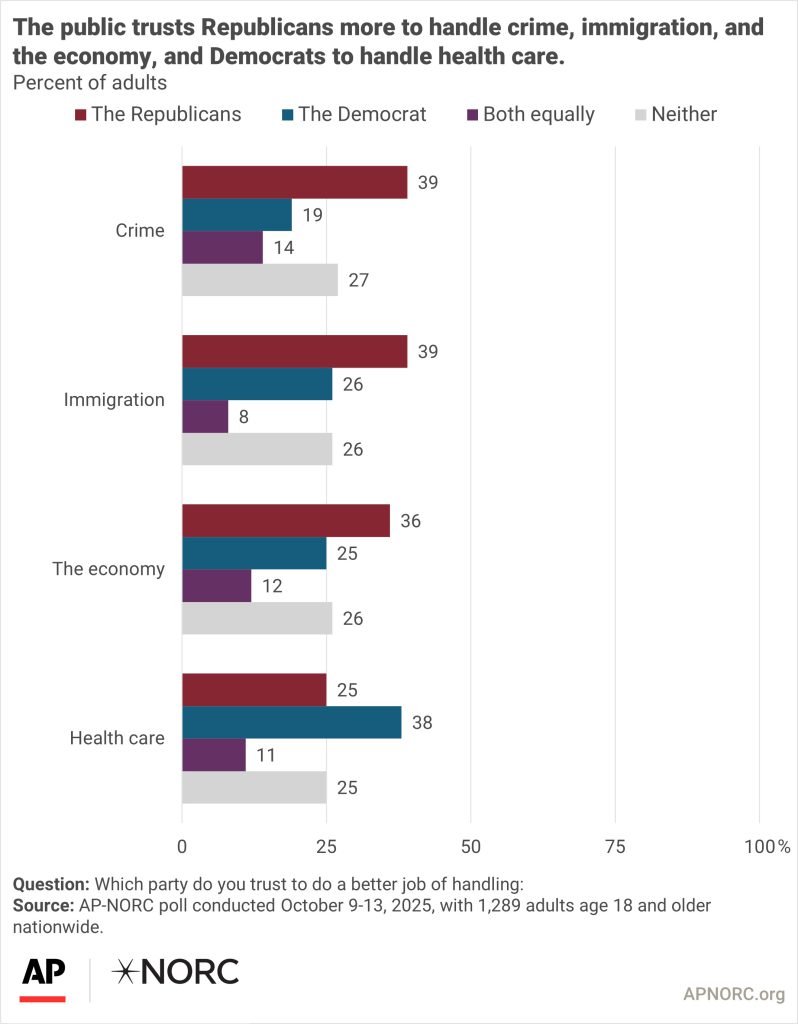
The nationwide poll was conducted October 9-13, 2025 using the AmeriSpeak® Panel, the probability-based panel of NORC at the University of Chicago. Online and telephone interviews using landlines and cell phones were conducted with 1,289 adults. The overall margin of sampling error is +/- 3.8 percentage points. The overall margin of sampling error for the 378 interviews completed with Hispanic respondents is +/- 6.9 percentage points.
- Suggested Citation: AP-NORC Center for Public Affairs Research. “Most see the federal shutdown as a problem and think there is plenty of blame to go around.” (October 2025). https://apnorc.org/projects/most-see-the-federal-shutdown-as-a-problem-and-think-there-is-plenty-of-blame-to-go-around/




